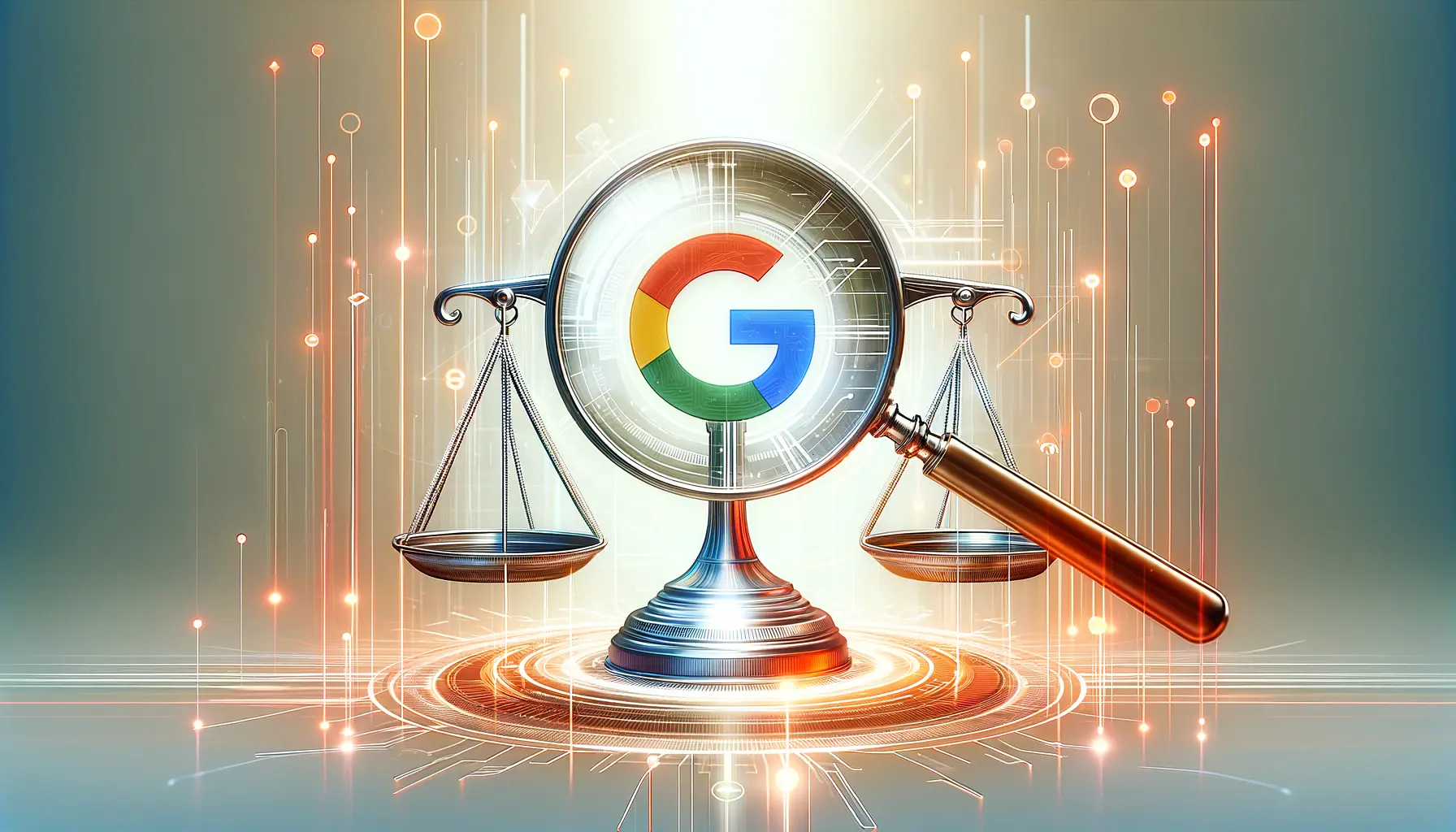The digital landscape for legal professionals is undergoing a significant transformation, primarily driven by advancements in search engine technologies.
Among these, Google’s Search Generative Experience (SGE) stands out as a pivotal innovation, reshaping the way law firms approach Search Engine Optimization (SEO).
This article delves into the intricacies of Google SGE and its profound impact on SEO strategies for lawyers, offering insights into optimizing online visibility in this new era.
Google SGE represents a leap forward in search technology, integrating generative artificial intelligence (AI) to enhance user search experiences.
This integration not only streamlines the process of finding relevant legal information but also introduces new challenges and opportunities for law firms aiming to maintain and improve their online presence.
Understanding the nuances of Google SGE is crucial for legal SEO professionals seeking to navigate this evolving landscape effectively.
- Understanding Google SGE and Its Relevance to Lawyers
- Optimizing Content for Google SGE
- Adapting SEO Strategies for AI Integration
- Enhancing User Experience for Better SEO Outcomes
- Local SEO for Law Firms in the Age of Google SGE
- Measuring SEO Success in a Google SGE World
- Future Trends: SEO and Legal Marketing Evolution
- Embracing the Future: Navigating Legal SEO in the Age of Google SGE
- FAQs on Google SGE’s Impact on Legal SEO
Understanding Google SGE and Its Relevance to Lawyers
What is Google SGE?
At its core, Google SGE is an advanced search feature that leverages AI to generate comprehensive, contextually relevant responses to user queries.
Unlike traditional search results, which primarily list links to external websites, SGE aims to provide direct answers within the search interface itself.
This capability is particularly significant for legal professionals, as it affects how potential clients discover and interact with legal information online.
The implementation of SGE in search processes means that law firms must adapt their SEO strategies to ensure their content is not only discoverable but also effectively summarized by Google’s AI.
This requires a deep understanding of how SGE interprets and presents legal content, emphasizing the need for clear, authoritative, and user-focused information.
Impact on Legal SEO Strategies
The advent of Google SGE necessitates a shift in SEO tactics for law firms.
Traditional keyword optimization and backlinking strategies, while still relevant, must be complemented with approaches that align with the AI-driven nature of SGE.
This includes optimizing for featured snippets, enhancing content quality, and focusing on the user intent behind search queries.
For legal professionals, this means creating content that not only addresses specific legal inquiries but does so in a manner that is easily digestible by Google’s AI.
It involves structuring content to highlight key information, using subheadings effectively, and ensuring that the content provides comprehensive answers to potential client questions.
This approach not only aids in SGE optimization but also improves the overall user experience, a critical factor in SEO success.
Adapting to Google SGE requires law firms to refine their SEO strategies, focusing on content quality, relevance, and AI-readability to enhance online visibility and client engagement.
Optimizing Content for Google SGE
In the context of Google’s Search Generative Experience, optimizing content goes beyond mere keyword insertion and link building.
For law firms, it’s about crafting content that Google’s AI can easily process and present as part of its generative search results.
This section outlines strategies for creating SGE-friendly content that resonates with both the AI and potential clients seeking legal assistance.
To effectively optimize content for Google SGE, legal SEO professionals must focus on several key areas:
- User Intent: Understanding the specific needs and questions of your target audience is crucial. Content should be tailored to answer these queries comprehensively and succinctly.
- Question-Based Optimization: Given SGE’s focus on providing direct answers, structuring content around common legal questions can improve its visibility in AI-generated responses.
- Clarity and Conciseness: Google’s AI favors content that is straightforward and to the point. Avoid legal jargon where possible and break down complex topics into digestible pieces.
- Structured Data: Implementing schema markup helps Google understand the context and relevance of your content, making it more likely to be featured in SGE results.
Techniques for Enhancing Content Readability
Enhancing the readability of your content not only benefits your audience but also aids in its discoverability through SGE.
Techniques include:
- Using short paragraphs and sentences to improve comprehension.
- Incorporating bullet points and numbered lists to outline key points or steps.
- Employing subheadings to organize content and guide readers through the text.
Featured Snippets and SGE
Featured snippets have become a critical component of SEO, offering a direct path to visibility at the top of search results.
For law firms, securing a featured snippet can lead to content being prioritized by Google SGE.
To achieve this, focus on:
- Identifying common legal inquiries related to your practice area.
- Creating dedicated content that directly answers these questions.
- Formatting answers in a clear, concise manner, using lists and tables where appropriate.
Remember, Google SGE is designed to enhance the user’s search experience by providing quick, accurate answers. Your content strategy should align with this goal, prioritizing the needs and questions of your potential clients.
Adapting SEO Strategies for AI Integration
The integration of AI into search engines like Google SGE represents a paradigm shift in how SEO strategies are developed and implemented, especially within the legal sector.
Law firms must adapt to remain competitive and visible in this new search environment.
This adaptation involves not only reevaluating content strategies but also embracing new technologies and methodologies to enhance online presence.
Key strategies for adapting to AI-driven search include:
- Embracing Semantic Search: AI technologies understand and prioritize the context and intent behind search queries. Law firms should focus on semantic SEO, which involves optimizing content to answer the intent of queries, not just the literal keywords.
- Leveraging AI for Content Creation: AI tools can assist in identifying trends, generating content ideas, and even drafting initial content outlines. However, it’s crucial to maintain a human touch, especially in sensitive areas like legal advice.
- Investing in Voice Search Optimization: With the rise of digital assistants, voice search is becoming increasingly important. Legal websites should be optimized for conversational queries, which often differ from typed searches in structure and intent.
Building Topical Authority
Google’s AI, including SGE, favors sources that exhibit deep knowledge and authority on specific topics.
Law firms can build topical authority by:
- Creating comprehensive content that covers a legal topic from multiple angles and depths.
- Regularly updating existing content to reflect the latest legal developments and insights.
- Encouraging external reputable sources to link to the firm’s content, enhancing its credibility and authority in the eyes of both users and AI algorithms.
Monitoring and Adapting to Algorithm Changes
Google frequently updates its algorithms, impacting how content is ranked and presented in search results.
Staying informed about these changes and adapting strategies accordingly is essential for SEO success.
This includes:
- Keeping abreast of official announcements from Google regarding SGE and other AI-driven features.
- Participating in SEO and legal marketing forums and communities to share insights and strategies.
- Conducting regular SEO audits to identify areas of improvement and ensure compliance with the latest best practices.
In the era of AI-driven search, flexibility and a willingness to innovate are key. Law firms that can effectively integrate AI into their SEO strategies will be better positioned to navigate the challenges and opportunities presented by technologies like Google SGE.
Enhancing User Experience for Better SEO Outcomes
The evolution of search technologies, particularly with the advent of Google SGE, underscores the importance of user experience (UX) in SEO strategies.
For law firms, this means creating a website and content that not only rank well but also provide value, accessibility, and engagement to potential clients.
Enhancing UX is a multifaceted approach that involves website design, content presentation, and interactive elements.
Key aspects of enhancing UX for better SEO outcomes include:
- Website Speed and Performance: A fast-loading website is crucial for retaining visitors and reducing bounce rates, which can positively impact SEO rankings. Law firms should optimize images, leverage browser caching, and minimize JavaScript and CSS files to improve site speed.
- Mobile Optimization: With the majority of searches now conducted on mobile devices, having a mobile-responsive website is essential. This ensures that content is easily accessible and readable on all screen sizes, enhancing the user experience and supporting SEO efforts.
- Intuitive Navigation: A well-structured website with clear, intuitive navigation helps users find the information they need quickly. Implementing a logical site hierarchy and easy-to-use menus can aid in both user satisfaction and search engine crawling.
Content Readability and Accessibility
Ensuring that content is readable and accessible to all users, including those with disabilities, is a critical component of UX.
This can be achieved by:
- Using clear, concise language and avoiding legal jargon that may confuse non-specialist readers.
- Incorporating headings, subheadings, bullet points, and short paragraphs to break up text and facilitate scanning.
- Implementing alt text for images, providing transcripts for videos, and ensuring that interactive elements are keyboard navigable for users with accessibility needs.
Engaging Visuals and Interactive Elements
Visuals and interactive elements can significantly enhance the user experience, making content more engaging and memorable.
Law firms can incorporate:
- Infographics and charts to summarize complex legal information visually.
- Interactive tools, such as cost calculators or legal checklists, to provide practical value to users.
- Video content to explain legal concepts or introduce the firm’s attorneys, adding a personal touch to the website.
A superior user experience not only supports SEO objectives by increasing dwell time and reducing bounce rates but also builds trust and credibility with potential clients, key factors in a law firm’s online success.
Local SEO for Law Firms in the Age of Google SGE
Local SEO has always been a cornerstone of online visibility for law firms, primarily because many legal services are sought by clients within specific geographic locations.
With the introduction of Google’s Search Generative Experience (SGE), the importance of local SEO has been further amplified.
SGE’s AI-driven approach to delivering search results makes it imperative for law firms to optimize their local online presence to capture the attention of both the AI and potential clients searching for legal services in their area.
Strategies to enhance local SEO in the context of Google SGE include:
- Optimizing Google My Business Listings: A complete and up-to-date Google My Business (GMB) profile is essential for appearing in local search results and Google Maps. Law firms should ensure their GMB listings include accurate contact information, business hours, and a description of legal services offered.
- Generating Local Reviews: Positive reviews from local clients can significantly boost a law firm’s visibility and credibility in search results. Encouraging satisfied clients to leave reviews on Google and other relevant platforms can help improve local SEO rankings.
- Local Keyword Optimization: Including location-specific keywords in website content, meta descriptions, and titles can help law firms rank higher in local search queries. This involves targeting keywords that potential clients in the firm’s geographic area are likely to use when searching for legal services.
Creating Local Content
Content that addresses the specific legal needs and questions of a law firm’s local community can improve local SEO performance.
This might include:
- Blog posts or articles on local legal issues, changes in local laws, or high-profile cases in the area.
- Community involvement stories, highlighting the law firm’s participation in local events or pro bono work.
- Location pages for each office, detailing the legal services offered and including local landmarks or directions to help clients find the firm.
Utilizing Local Citations and Backlinks
Local citations (mentions of the law firm’s name, address, and phone number on other websites) and backlinks from reputable local sources can enhance a firm’s local SEO.
Efforts to secure these should focus on:
- Listing the law firm on local business directories and legal-specific directories.
- Engaging with local media or legal publications for features or guest articles.
- Partnering with other local businesses or organizations for events or sponsorships that might result in online mentions.
In the era of Google SGE, local SEO requires a multifaceted approach that combines traditional tactics with new strategies tailored to AI-driven search. By focusing on local optimization, law firms can ensure they remain competitive and visible to potential clients in their target geographic areas.
Measuring SEO Success in a Google SGE World
As Google’s Search Generative Experience (SGE) reshapes the SEO landscape, law firms must also evolve their approaches to measuring SEO success.
Traditional metrics like keyword rankings and organic traffic volumes remain important, but in an SGE-dominated search environment, additional factors come into play.
Understanding and tracking the right metrics can provide law firms with valuable insights into their SEO strategies’ effectiveness and areas for improvement.
To accurately measure SEO success in the context of Google SGE, consider the following metrics and approaches:
- User Engagement Metrics: With SGE aiming to provide direct answers within the search results, monitoring metrics such as time on site, pages per session, and bounce rate becomes crucial. These indicators can help assess the quality and relevance of your content from the users’ perspective.
- SGE Feature Appearances: Tracking instances where your content is featured in SGE answers or snippets can provide insights into the visibility and performance of your content within Google’s AI-driven search results.
- Local SEO Performance: For law firms, local visibility is key. Metrics such as Google My Business listing views, local search rankings, and reviews can help gauge the effectiveness of local SEO efforts.
Utilizing SEO Analytics Tools
Several SEO analytics tools can help law firms track and analyze their SEO performance in an SGE world.
These tools offer features for monitoring keyword rankings, analyzing backlink profiles, and assessing competitor strategies.
Popular options include Google Analytics, SEMrush, and Ahrefs.
Leveraging these tools can provide law firms with the data needed to make informed decisions about their SEO strategies.
Adapting Strategies Based on Data
Data-driven decision-making is essential for SEO success.
By regularly reviewing SEO metrics and performance data, law firms can identify trends, pinpoint areas for improvement, and adapt their strategies to better align with Google SGE’s requirements and user search behaviors.
This might involve refining content strategies, enhancing website usability, or focusing more on local SEO elements.
Ultimately, measuring SEO success in a Google SGE world requires a comprehensive approach that goes beyond traditional metrics.
By focusing on user engagement, SGE feature appearances, and local SEO performance, law firms can gain a clearer understanding of their online visibility and effectiveness in reaching potential clients.
Relying solely on keyword rankings as a measure of SEO success is increasingly outdated in the age of AI-driven search experiences. A broader set of metrics, reflecting user engagement and content relevance, is essential for evaluating SEO performance in the context of Google SGE.
Future Trends: SEO and Legal Marketing Evolution
The integration of Google’s Search Generative Experience (SGE) into the search ecosystem marks just the beginning of a broader evolution in SEO and legal marketing.
As AI and machine learning technologies continue to advance, law firms must stay ahead of the curve to maintain their competitive edge.
This final section explores potential future trends in SEO and legal marketing, highlighting the importance of innovation and adaptability.
Anticipated future trends in SEO and legal marketing include:
- Increased Personalization: AI’s ability to understand and predict user intent will lead to more personalized search experiences. Law firms may need to create more targeted and personalized content to meet the specific needs of different user segments.
- Greater Emphasis on Voice Search: As voice-activated devices become more prevalent, optimizing for voice search will become increasingly important. This will require a focus on natural language processing and conversational content that aligns with how people speak.
- Expansion of Visual Search: With improvements in image recognition technology, visual search capabilities will expand. Law firms could leverage this trend by optimizing visual content, such as infographics and videos, for search.
Adopting Emerging Technologies
Staying competitive in the evolving SEO landscape will require law firms to adopt and experiment with emerging technologies.
This could include leveraging AI for content creation and optimization, using chatbots for enhanced user engagement, and exploring augmented reality (AR) for immersive content experiences.
Embracing these technologies can help law firms offer unique value propositions and improve their online visibility.
Building for the Future
The future of SEO and legal marketing is dynamic and filled with opportunities for law firms willing to innovate and adapt.
By closely monitoring industry trends, investing in new technologies, and prioritizing user experience, law firms can navigate the challenges of an AI-driven search environment and emerge as leaders in their field.
As we look to the future, the key to success in SEO and legal marketing lies in understanding the evolving digital landscape, anticipating changes, and being proactive in adopting strategies that align with these advancements.
Law firms that can effectively leverage AI, voice search, and other emerging technologies will be well-positioned to attract and engage clients in the digital age.
The evolution of SEO and legal marketing is an ongoing journey. Law firms that commit to continuous learning, experimentation, and adaptation will thrive in the face of technological advancements and changing user behaviors.
Embracing the Future: Navigating Legal SEO in the Age of Google SGE
The advent of Google’s Search Generative Experience (SGE) has undeniably set a new course for SEO strategies, particularly within the legal sector.
As we’ve explored throughout this article, the integration of AI into search processes demands a reevaluation and adaptation of traditional SEO approaches.
Law firms now face the challenge of optimizing their online presence not just for search engines, but for sophisticated AI algorithms capable of understanding and anticipating user intent.
The Path Forward with Google SGE
Adapting to Google SGE requires law firms to adopt a multifaceted approach to SEO.
This includes enhancing content readability, focusing on local SEO, measuring SEO success with new metrics, and preparing for future trends in legal marketing.
The goal is to create content that not only ranks well but also meets the direct needs of potential clients, as interpreted by Google’s AI.
- Optimizing for user intent and enhancing content structure for AI readability.
- Emphasizing local SEO to remain visible in geographically targeted searches.
- Utilizing advanced analytics tools to measure SEO success in the context of SGE.
- Staying ahead of emerging trends, such as voice and visual search, to maintain competitive advantage.
Key Takeaways for Law Firms
The integration of Google SGE into the search landscape underscores the importance of agility and innovation in legal SEO strategies.
Law firms must:
- Continuously monitor and adapt to the evolving capabilities of AI and machine learning in search.
- Invest in creating high-quality, authoritative content that addresses the specific needs of their target audience.
- Embrace new technologies and platforms to enhance user engagement and experience.
- Anticipate future developments in search technology and user behavior to stay ahead of the curve.
In conclusion, the impact of Google SGE on legal SEO is profound, presenting both challenges and opportunities for law firms.
By embracing these changes and adopting a forward-thinking approach to SEO, law firms can not only navigate the complexities of an AI-driven search environment but also enhance their visibility and engagement with potential clients.
The future of legal marketing in the age of Google SGE is bright for those prepared to innovate and adapt.
Want your website to top Google search rankings? Leave the SEO to our professional agency!
FAQs on Google SGE’s Impact on Legal SEO
Explore common inquiries about how Google’s Search Generative Experience is transforming legal SEO practices.
Google SGE, or Search Generative Experience, uses AI to enhance search results with comprehensive, AI-generated answers directly on the search page.
SGE changes how potential clients find legal information, emphasizing the need for law firms to optimize content for AI-driven search insights.
Yes, by optimizing for SGE, law firms can enhance their visibility in local search results, attracting more clients from their geographic area.
Law firms should focus on creating clear, authoritative content, optimizing for featured snippets, and enhancing local SEO practices.
Extremely important. Content must be easily digestible by Google’s AI to be featured prominently in SGE-generated search results.
Yes, mobile optimization is crucial as SGE aims to provide an optimal search experience across all devices, including smartphones.
By monitoring user engagement metrics, SGE feature appearances, and local SEO performance, law firms can gauge their SEO effectiveness.
Law firms should anticipate more personalized search experiences, increased importance of voice search, and the expansion of visual search capabilities.












